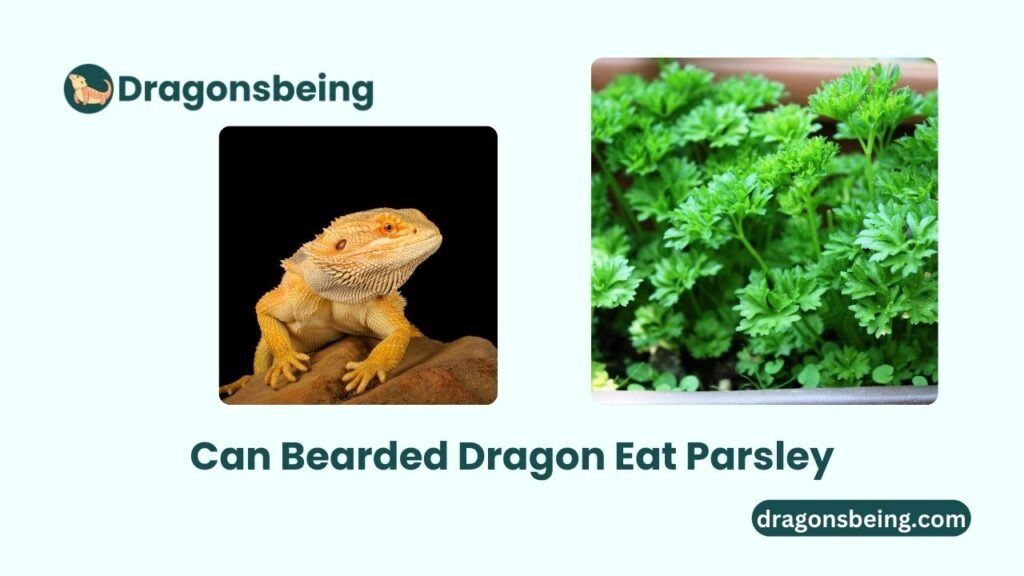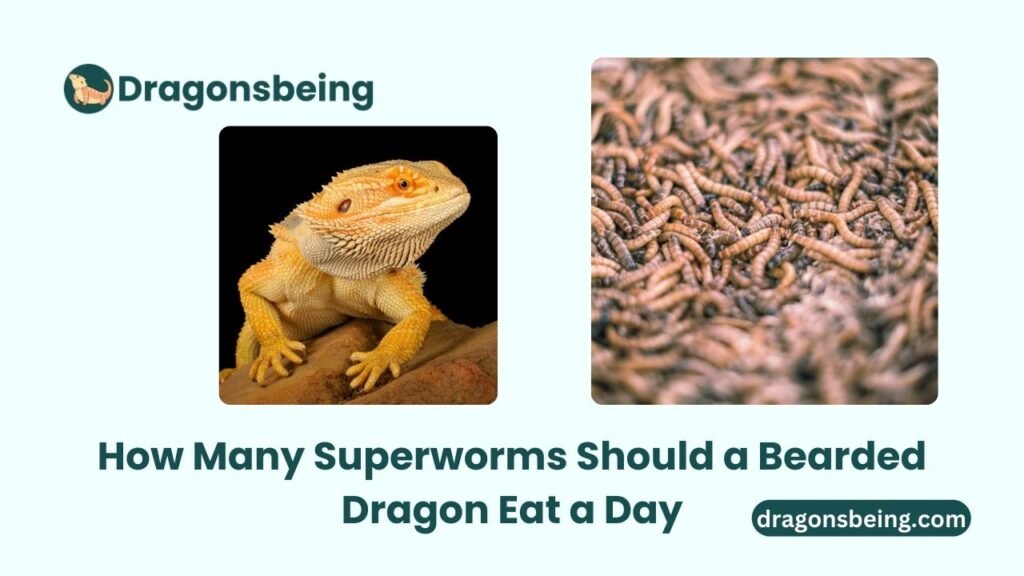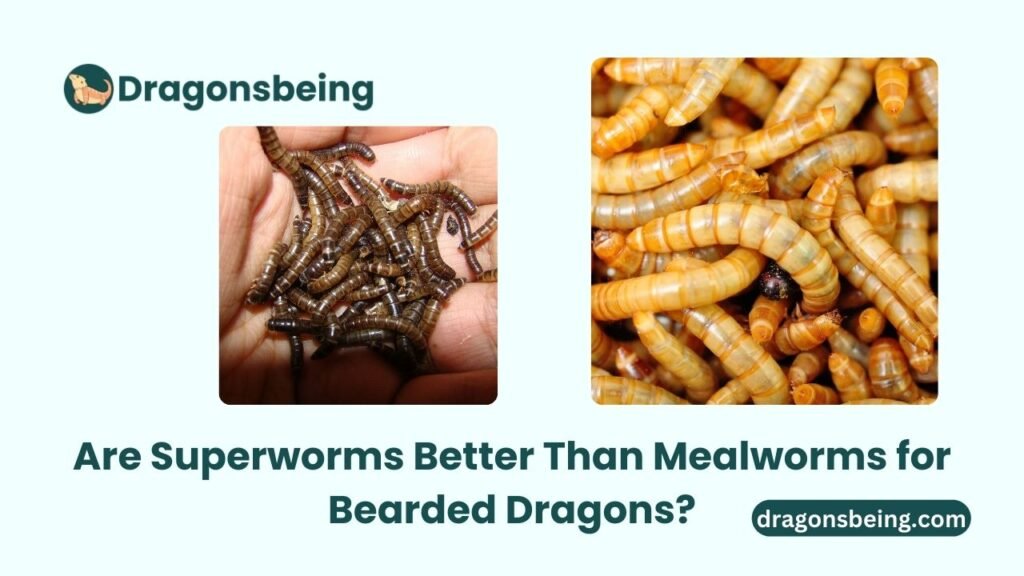Yes, bearded dragons can eat parsley, but it should be offered in moderation. Too much parsley can lead to health issues.
Bearded dragons are popular pets known for their unique dietary needs. A balanced diet is crucial for their health and well-being.
Owners often seek to diversify their pet’s meals with various vegetables and herbs. Parsley is one such herb that can be included in their diet.
Rich in vitamins and minerals, parsley offers some nutritional benefits. However, it should not be the main component of their meals.
Understanding the appropriate portions and feeding frequency can help keep your bearded dragon healthy.
This article explores the benefits and precautions of including parsley in your pet’s diet.
Nutritional Value Of Parsley
Parsley is a popular herb known for its bright flavor and vibrant color. It is rich in essential nutrients. Many pet owners wonder if parsley is safe for their bearded dragons. Understanding its nutritional value is key to this decision.
Vitamins And Minerals
Parsley is packed with vitamins and minerals that can benefit bearded dragons. Here are some key nutrients:
| Nutrient | Amount per 100g |
|---|---|
| Vitamin A | 421 µg |
| Vitamin C | 133 mg |
| Calcium | 138 mg |
| Iron | 6.2 mg |
This table shows how parsley can offer important nutrients. Vitamin A supports vision and immune health. Vitamin C boosts overall health and helps fight infections.
Potential Health Benefits
Feeding parsley to your bearded dragon can provide several health benefits:
- Improved Digestion: Parsley has fiber that aids digestion.
- Bone Health: Calcium in parsley supports strong bones.
- Antioxidant Properties: Vitamins fight free radicals in the body.
- Hydration: High water content keeps your dragon hydrated.
Use parsley in moderation. Too much can lead to health issues. Always consult a vet before making changes to your pet’s diet.
Parsley In A Bearded Dragon’s Diet
Bearded dragons enjoy a variety of foods. Fresh vegetables are essential for their health. Parsley is one option that many owners consider. It can add flavor and nutrients to their diet. Understanding its safety and frequency is crucial.
Is Parsley Safe?
Parsley is generally safe for bearded dragons. It contains vitamins and minerals. However, moderation is key. Too much parsley can lead to health issues.
- High in calcium
- Contains vitamin K
- Rich in antioxidants
Some important points:
- Fresh parsley is better than dried.
- Wash it thoroughly to remove pesticides.
- Only use it as a treat, not a staple food.
How Often Can They Eat It?
Bearded dragons can eat parsley occasionally. Offer it once a week. This helps prevent digestive issues.
| Food Item | Frequency |
|---|---|
| Parsley | Once a week |
| Leafy greens | 3-4 times a week |
| Fruits | Once a month |
Always monitor your dragon’s health. Adjust their diet based on their needs. Variety keeps their meals exciting and nutritious.
Benefits Of Parsley For Bearded Dragons
Parsley offers many health benefits for bearded dragons. This vibrant herb is rich in vitamins and minerals. Adding parsley to their diet can enhance their overall well-being. Let’s explore its specific benefits.
Digestive Health
Parsley can aid in your bearded dragon’s digestive process. It contains fiber that promotes smooth digestion. A healthy digestive system is crucial for nutrient absorption.
- High Fiber Content: Helps prevent constipation.
- Natural Diuretic: Supports kidney function.
- Hydration: Parsley has high water content.
Using parsley can lead to healthier digestion and better nutrient uptake.
Skin And Scale Health
Parsley also benefits the skin and scales of bearded dragons. It contains antioxidants that promote vibrant skin. These properties help in shedding and maintaining healthy scales.
| Benefit | Description |
|---|---|
| Vitamins A and C | Support skin health and cell regeneration. |
| Antioxidants | Fight against free radicals and skin damage. |
| Hydration | Keeps skin moist and prevents dryness. |
Including parsley can enhance the appearance and health of their skin and scales.
Potential Risks Of Feeding Parsley
Feeding your bearded dragon parsley can pose some risks. While parsley has nutrients, it also contains substances that can affect your pet’s health. Understanding these risks is vital for your dragon’s well-being.
Oxalates And Calcium Absorption
Parsley contains oxalates. These can bind with calcium. This binding reduces calcium absorption in your dragon’s body. Bearded dragons need calcium for strong bones and overall health.
Too many oxalates can lead to health issues like:
- Metabolic bone disease
- Weakness
- Deformed bones
Limit parsley to avoid high oxalate levels. Balance it with calcium-rich foods.
Portion Control
Portion control is essential with parsley. Only small amounts should be given. Too much can lead to health problems.
Follow these guidelines:
- Offer parsley once a month.
- Limit to one small leaf.
- Mix with safe veggies for variety.
Always monitor your dragon after feeding parsley. Watch for signs of discomfort or digestive issues.
How To Properly Introduce Parsley
Introducing parsley to your bearded dragon’s diet can be beneficial. This herb offers nutrients and variety. Follow these steps to ensure a safe introduction.
Washing And Preparation
Proper washing and preparation are crucial. Here’s how to do it:
- Choose fresh, organic parsley.
- Rinse the parsley under cold water.
- Remove any dirt or chemicals.
- Pat dry with a clean towel.
- Chop into small, manageable pieces.
Chopped pieces help your dragon eat easily. Avoid serving large chunks. Always ensure the parsley is fresh before feeding.
Mixing With Other Greens
Mixing parsley with other greens enhances nutrition. Follow these tips:
- Combine parsley with collard greens or dandelion greens.
- Use a ratio of 1 part parsley to 3 parts other greens.
- Chop all greens into small pieces for easier consumption.
- Introduce new mixes slowly over a week.
This gradual approach helps prevent digestive issues. Always monitor your dragon’s reaction to the new mix. Adjust portions based on their preferences.
Alternative Greens For Bearded Dragons
Bearded dragons thrive on a variety of greens. Some greens are better than others. Choosing the right greens keeps them healthy and happy. Here are some excellent alternatives to parsley.
Mustard Greens
Mustard greens are a fantastic choice. They are rich in vitamins A, C, and K. These nutrients boost your dragon’s health. Mustard greens also have a slightly spicy flavor.
- High in calcium
- Good fiber content
- Low in oxalates
Feeding mustard greens can support digestion. Chop them into small pieces for easy eating. Mix them with other greens for variety.
Collard Greens
Collard greens are another great option. They provide essential vitamins and minerals. Collard greens are also high in calcium.
| Nutrient | Amount per 100g |
|---|---|
| Vitamin A | 1400 IU |
| Calcium | 145 mg |
| Vitamin C | 35 mg |
Collard greens are easy to prepare. Wash them thoroughly and chop them finely. Serve them fresh to keep your bearded dragon interested.
Frequently Asked Questions
Can Bearded Dragons Eat Parsley Safely?
Yes, bearded dragons can eat parsley in moderation. It’s not toxic but should not be a staple.
What Are The Benefits Of Parsley For Bearded Dragons?
Parsley provides vitamins A, C, and K, which support overall health, but should be given sparingly.
How Often Can I Feed Parsley To My Bearded Dragon?
Offer parsley occasionally, about once every two weeks, to maintain a balanced diet.
Is Parsley Good For Baby Bearded Dragons?
Parsley is not recommended for baby bearded dragons due to its high oxalate content.
What Other Greens Can Bearded Dragons Eat?
Bearded dragons can enjoy collard greens, dandelion greens, and mustard greens for variety and nutrition.
Can Parsley Cause Any Health Issues In Bearded Dragons?
Excessive parsley can lead to kidney issues. Always feed in moderation to prevent health problems.
Conclusion
Feeding parsley to your bearded dragon can be a great addition to their diet. Ensure it is offered in moderation, as too much can cause digestive issues. Always combine parsley with other vegetables and greens for a balanced diet. Prioritize your pet’s health by researching safe foods regularly.
Happy feeding!

Hi, I’m Dr. Michelle Mayers, a veterinary professional with a deep passion for animal health and well-being. Over the years, I’ve dedicated my life to caring for animals and helping pet owners better understand their furry, feathered, or scaly companions. On my blog, Dragonsbeing, I share insights, tips, and stories that aim to educate, inspire, and connect with fellow animal lovers. Join me at Dragonsbeing as we explore the fascinating world of veterinary care and celebrate the special bond between humans and animals!


